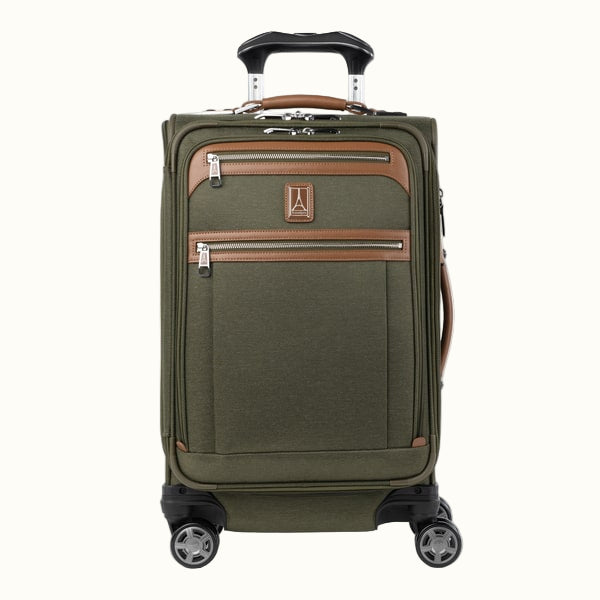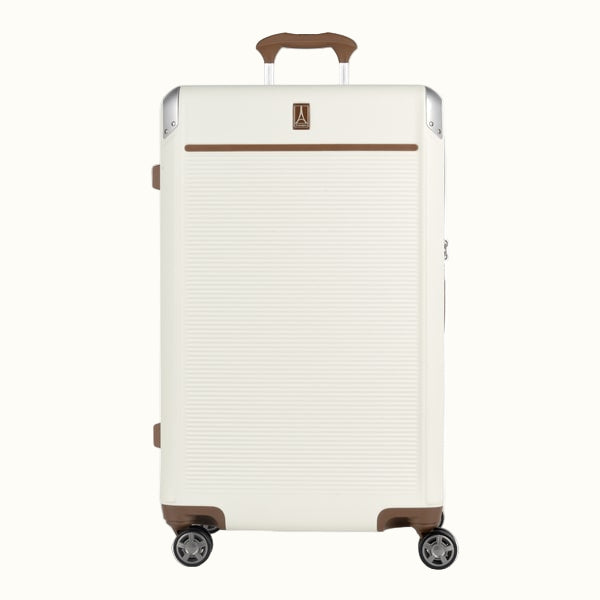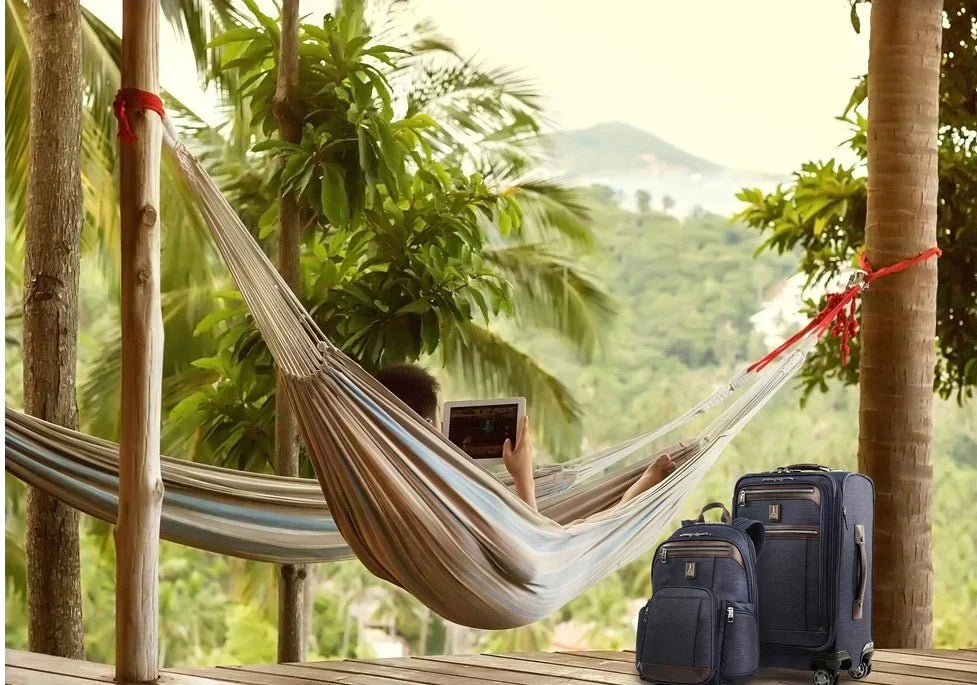International tourism is a booming industry. Over 1.4 billion people traveled for vacations in 2019. As the COVID-19 pandemic ebbs, tourists are eager to resume travel, with tourism levels rebounding to 85 percent of their previous levels.
While tourism has many advantages, including personal enjoyment and economic opportunities for travel destinations, the industry can harm both the environment and the health of local communities. Knowing how to travel sustainably helps mitigate the damaging aspects of tourism, so you enjoy the benefits of travel without inadvertently hurting the destinations you love.
What is Sustainable Tourism?
Sustainable tourism considers the economic, human, and environmental impacts of travel, reducing tourism’s negative effects while creating positive outcomes for local communities, cultures, and ecosystems. Sustainable tourism is often used interchangeably with eco-friendly travel but has a broader intent. Eco-friendly travel focuses only on the maintenance and preservation of the natural environment. In contrast, sustainable travel includes the well-being of communities and uses tourism to improve the economic and social health of local communities while also conserving the environment.
While the tourism industry spearheads many sustainable and eco-friendly initiatives, individual travelers can play their part in improving sustainability. Below are some helpful sustainable travel tips to help you become a more conscientious tourist.
Travel in Shoulder or Off-Seasons
During the height of tourist season, some locations experience a deluge of travelers that threatens to overwhelm local resources. Shoulder-to-shoulder tourists jostling for the best vantage point, crowding hiking trails, or consuming local resources can cause significant damage to landscapes and the environment while competing with the local community for essential resources.
In some small communities, tourists can outnumber inhabitants. Venice is one such location. The city numbers just 55,000 permanent residents but sees 120,000 tourists on any given day of peak season.
Some destinations have begun to put limits on the number of tourists who can visit. You can help by traveling during the shoulder or off-season when fewer visitors put less stress on their surroundings. One of the biggest mistakes travelers make is visiting a popular destination when everyone else is doing the same thing.
Travel off the Beaten Path
Knowing how to be a sustainable traveler often means skipping the popular tourist traps and venturing into less explored territory. For instance, while other safari lovers flock to the big African game destinations like the Serengeti and Kruger National Park, check out some of the lesser-known countries like Malawi, which are less recognizable but filled with amazing wildlife (and less tourists). Venice is lovely, but you might find it more rewarding to visit a small, out-of-the way Italian town free from the crush of thousands of other tourists.
Choose Ethical and Sustainable Accommodation
The pressure tourism puts on local water, food, and energy resources is significant, and only likely to increase as the global population grows and climate conditions change. When hundreds of thousands of tourists visit a location, the price and availability of these resources increases for everyone, including the locals.
Practice sustainable tourism by staying in ethical, low-impact accommodations. This may mean avoiding the all-inclusive resort in favor of a smaller hotel or AirBnB, or paying more for a resort that has a proven commitment to renewable energy and water conservation. Knowing how to travel sustainably means learning how to choose accommodations that are truly green and sustainable, not just the ones that pay lip service to sustainability in their marketing brochures. A little research online is usually sufficient to tell whether a business is committed to sustainability.
Opt for accommodations that:
- Employ energy- and water-efficient technologies
- Eliminate single-use plastics in favor of reusable or compostable alternatives.
- Hire local people at all levels of the company, including management.
- Prioritize local supplies and producers
- Emphasize respectable culture experiences and interactions with wildlife.
Choosing Sustainable Transportation
Tourism accounts for approximately eight percent of global carbon emissions, according to Sustainable Travel International, with almost half of those emissions caused by travel. How you choose to travel, therefore, has a huge impact on whether your tourism is sustainable.
Travel is an integral part of tourism, of course, as you can’t explore the world without moving. While you won’t be able to completely avoid all travel-based carbon emissions, these sustainable tourist tips will help you keep them to a minimum:
- Travel by train or coach when possible, rather than renting a car or flying.
- At your destination, consider using public transportation or renting a bicycle.
- When you have to rent a car, choose a smaller model, a hybrid, or an electric car.
- Use airlines who are heavily investing in biofuels.
- Carbon offset flights or car rentals.
Packing For Sustainable Travel
If you’re packing for sustainable travel, the type of luggage you use matters. Heavier airplanes consume more fuel, so your luggage size and its fully-packed weight have an impact. The traveler who learns how to pack a carry-on efficiently has a sustainable advantage over someone who travels with a full set of checked luggage. (Having said that, it’s important to remember what you cannot pack in a carry-on. Some items have to travel in checked luggage).
Sustainable travelers focus on packing light and traveling with reusable, zero-waste items. Pick up a reusable water bottle so you won’t need to buy water in single-use plastic bottles. Invest in reusable shoe bags and laundry bags rather than bundling shoes and dirty clothing in plastic grocery bags. Reusable utensils, toiletry bottles, and compostable toothbrushes further reduce your impact on the local environment.

Learn the Language and Culture
Travel offers the opportunity to explore other people’s history, traditions, and culture. Make your journey more rewarding — and easier on the locals — by learning a little about their culture and language before you travel. Free language apps are a great way to learn basic phrases. It might not seem like learning to say please and thank you is a big deal, but locals really appreciate tourists who respect their culture enough to learn some how to be polite in their language.
Respect local views on politeness and intimacy. Something as simple as holding hands with your partner, which wouldn’t get a second look in North America, may be seen as scandalous in some parts of the world. Be aware of the words, gestures, and behavior your hosts consider offensive, and take steps to avoid them. If you have any doubts, ask about local expectations. Always ask before taking photos, and be sure you understand what is appropriate when visiting religious, spiritual, or culturally significant sites.
Wherever you roam, obey all the local laws and guidelines, and try to leave natural places like you found them — or better. Spending a few minutes cleaning up after a day at the beach demonstrates your commitment to sustainability and will stand you in good stead with the locals. You want to be the type of tourist locals want to see more of!





